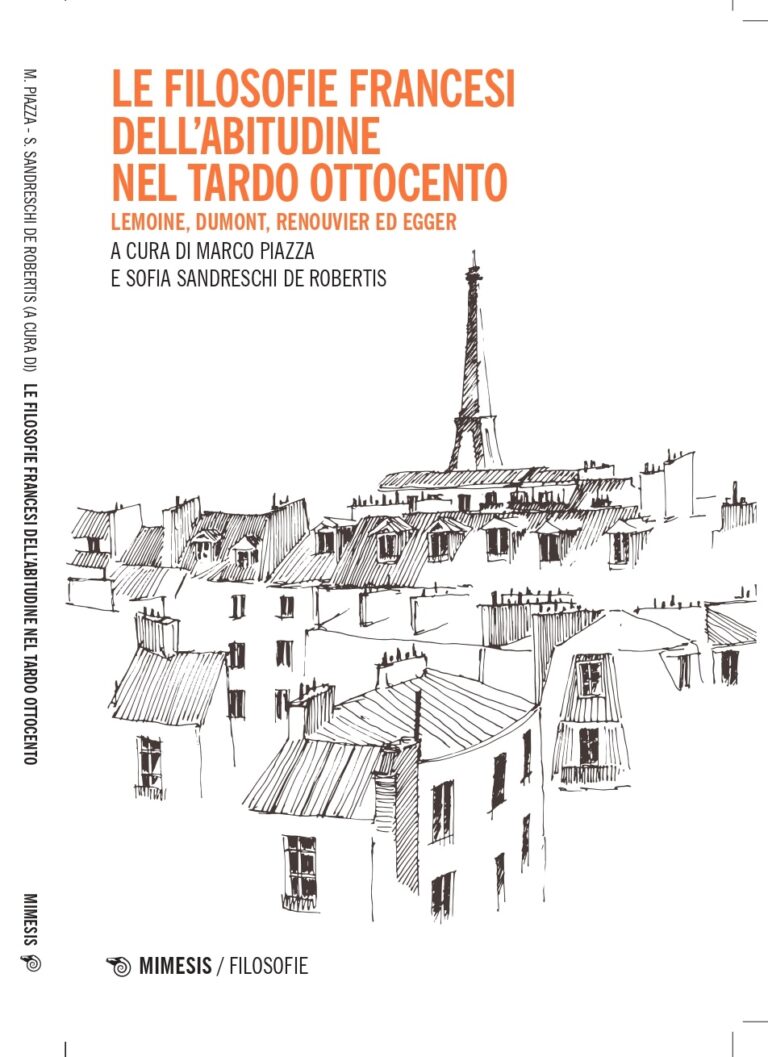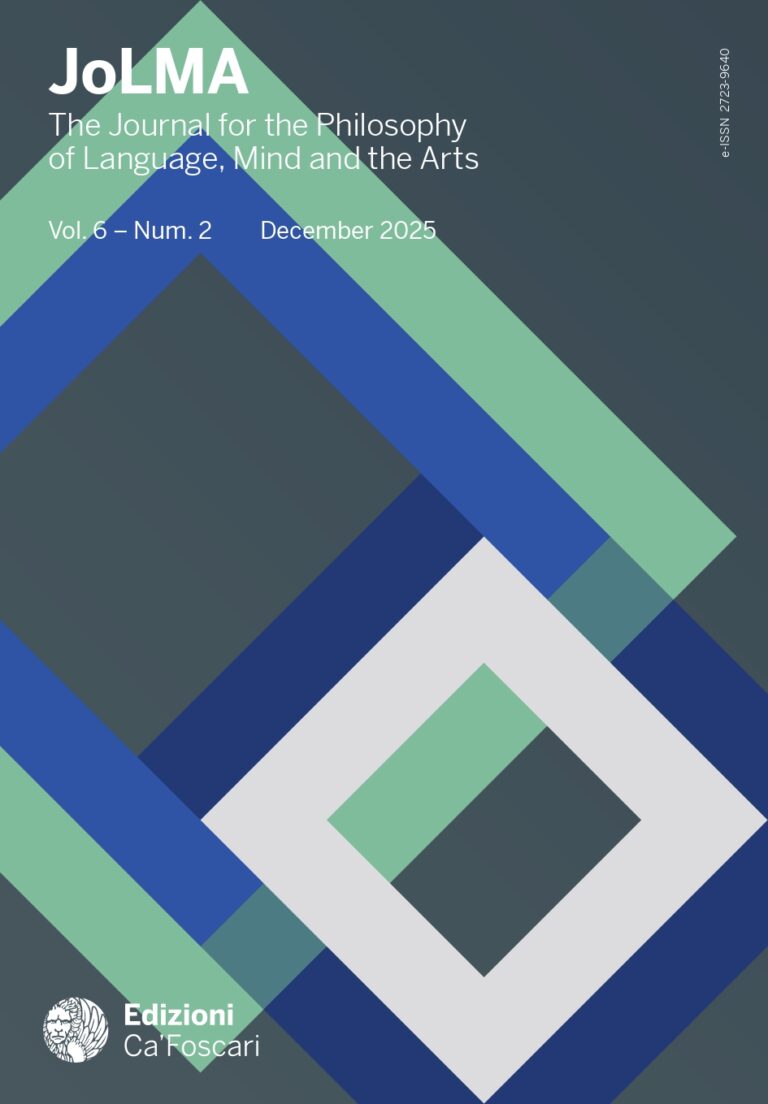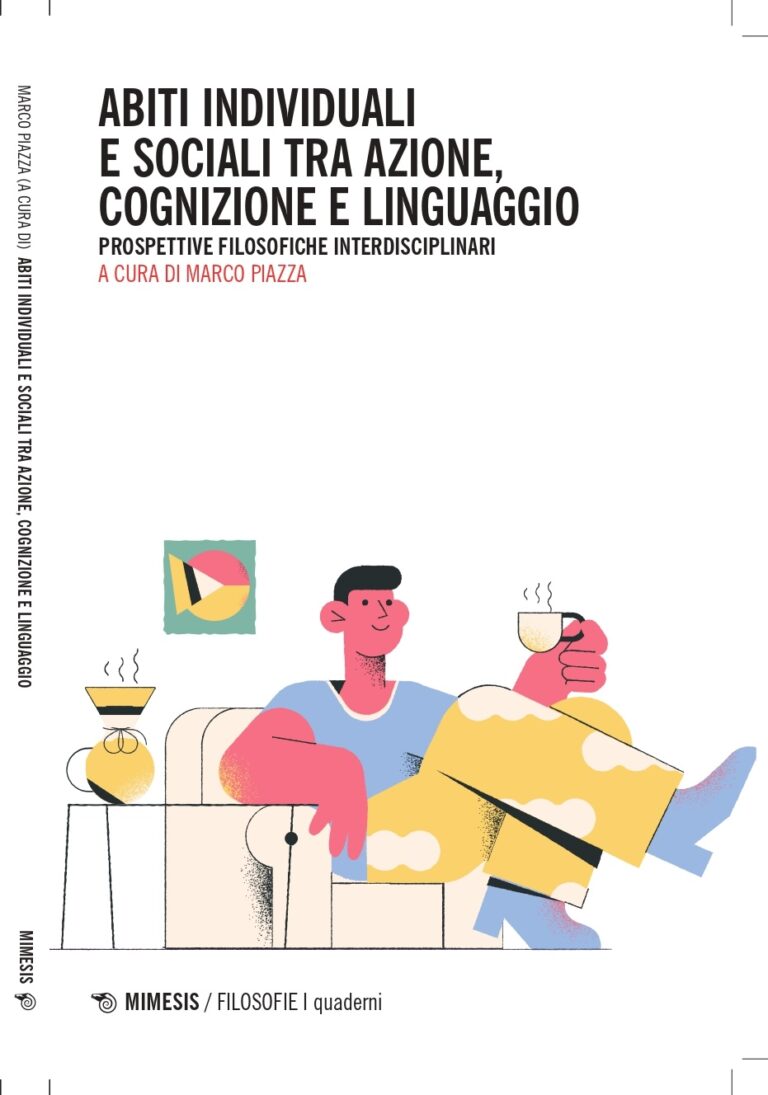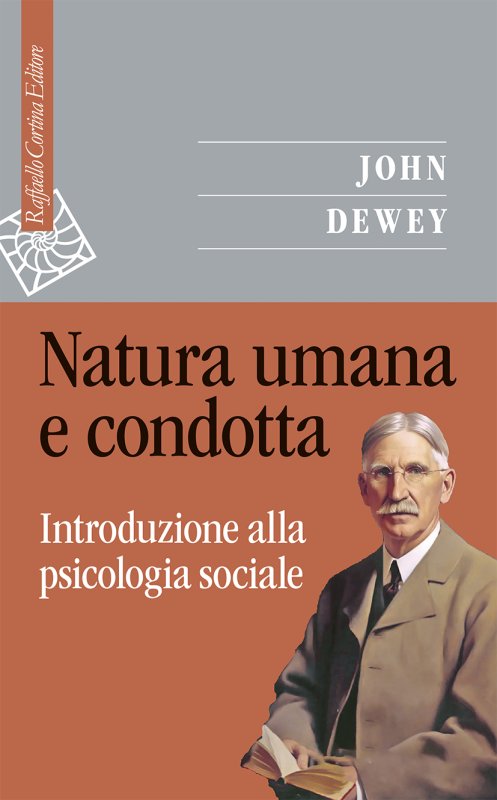We highlight below the publication of the most recent essays by Members or Contributors of the Philhabits Center.
PIAZZA, M., Montaigne and coutume: A Relativistic Revolution?, “Discipline filosofiche”, XXXIV, 2, 2024, pp. 191-209
Montaigne’s doctrine on custom (coutume) represents a revolution compared to the philosophies of habit and custom of Patristics and Scholasticism. Precisely because of its innovativeness, this doctrine, in the second half of the 20th century, was interpreted, especially by scholars of the human and social sciences, as an an- ticipation of the cultural relativism on which contemporary ethnology is based. This contribution aims firstly at illustrating the main characters of Montaigne’s reflection on custom, and secondly at problematising the ascription of Mon- taigne’s thought to cultural relativism. By analysing above all the chapters of theEssais on custom (I, 23) and on cannibals (I, 31), the originality and relevance of Montaigne’s conception of custom will be shown, and arguments will be provided for rejecting the relativistic interpretation that has spread beyond the boundaries of ethnological studies.
Keywords. Montaigne, Custom, Habit, Relativism, Ethnology.
DREON, R., The Arts are Made of (Intelligent) Habits, “Aisthesis”, 17, 1, 2024, pp. 135-153, doi: 10.7413/2035-8466010
Abstract. Contrary to the traditional picture of “Art” as an autonomous realm separate from artisanal and technical activities, a view dating back to the second part of the eighteenth century, this paper claims that artistic practices are largely scaffolded by habits, understood as more or less flexible channelings of both organic and environmental energies. More precisely, the author suggests developing Dewey’s idea of “intelligent habits” as a conceptual tool that can solve the issue of the peculiar intelligence associated with artistic practices, as well as get rid of the picture of artistic creativity as involving a radical break with one’s habits. On the one hand, assuming that habits’ intelligence consists in their sensibility to the environment, artistic habits would appear to be one entailing an enhanced sensibility to changes in the situation in which they are embedded, and to the interactions that are occurring between doing and perceiving. On the other hand, rejecting the standard view of artistic creation as radically original, innovative, and solitary and assuming a view of it as embedded in a shared form of life, supported by a common sensibility, collective practices, and norms of conduct, allows us to focus on the creative side of intelligent habits, as well as to appreciate how enhanced creativity is grounded in previously established habits and produces new or renewed ones.
Keywords.Artistic habits, intelligence, creativity, John Dewey, 4E cognition.
MORELLI, A., Wittgenstein on Habit and Custom: A Conceptual Analysis, “Argumenta”, 2024, pp. 1-18, doi 10.14275/2465-2334/20240
Abstract. This paper presents a conceptual analysis of Wittgenstein’s use of the notions of habit and custom. References to habit and custom abound in Wittgenstein’s writings already from the 1930s, but no particular focus has been placed on his actual use of these notions. The aim of the paper is to provide a preliminary conceptual tool useful for developing a fruitful engagement between Wittgenstein’s “post-tractarian” philosophy and contributions to the philosophy of habit. To do this, I will first trace relevant occurrences in Wittgenstein’s writings. Secondly, I will map the use of these concepts by identifying three related families of German ex- pressions: Gepflogenheit, Gewohnheit and Gebrauch/Sitte. Finally, I will present three philosophical contexts in which the two notions play an important role: 1. remarks on rule-following; 2. imaginary cases; 3. meta-philosophical remarks on philosophical problems. I will conclude that Wittgenstein’s reference to habit and custom is an important element of his anthropological or pragmatic turn.
Keywords. Wittgenstein, Habit, Custom, Habituation, Conceptual analysis.
PIAZZA, M., Esercitati, adattati, inclinati. Corpi alla prova dell’abitudine, “La società degli individui”, 79, XXVII, 2024/1, pp. 39-51, doi 10.3280/LAS2024-079004
Abstract. The contribution addresses the topic of bodily habits from both a historical and theoretical perspective. It illustrates the ancient, Aristotelian premises, according to which habits have a non-intellectual but practical connotation, the modern turning point, in which a neutral, non-moral consideration of bodily habits emerges, together with the study of their neurophysiological correlates, until arriving at the centrality of bodily habits in 20th-centu- ry philosophy, after the 19th-century leg marked by the development of the so-called ‘double law of habit’. The contribution brings into focus a conception of bodily self that is influenced by French phenomenological thought and American pragmatist tradition, especially Merleau-Ponty in the first case, and Dewey in the second. In support of this conception, re- cent developments in the philosophies of habit are investigated, both in dialogue with neuro- sciences and with non-Western traditions, such as the Japanese.
Keywords. Philosophy of Habit, Corporeality, Repetition, Automatisms, Active Intuition.





